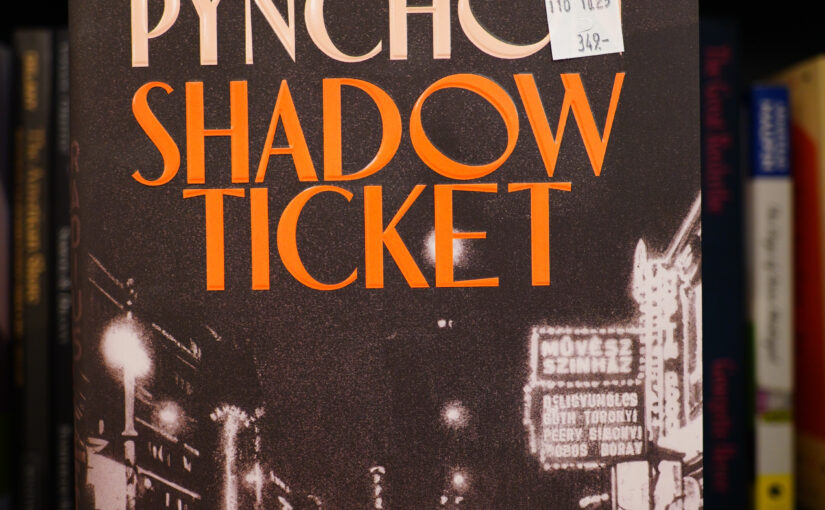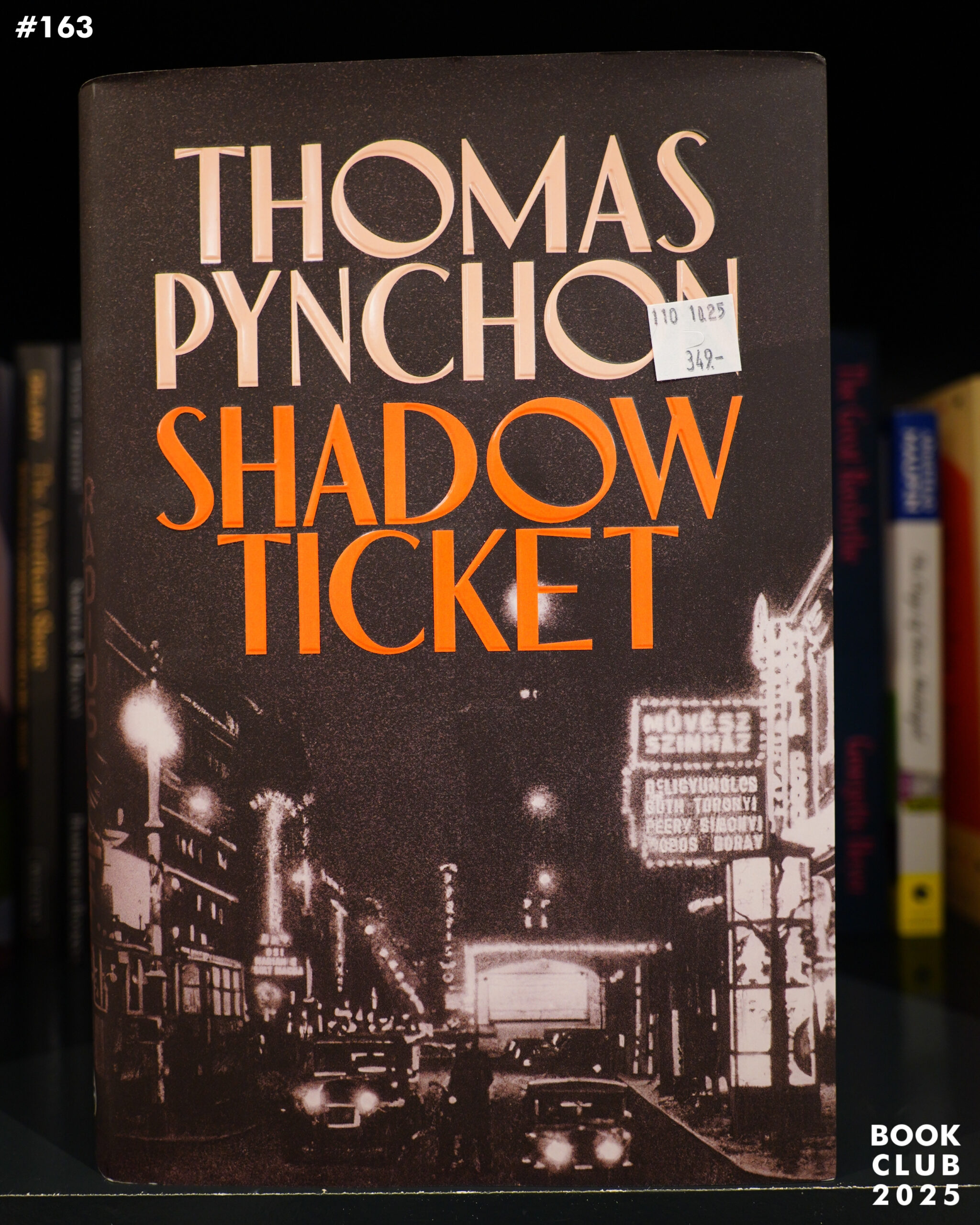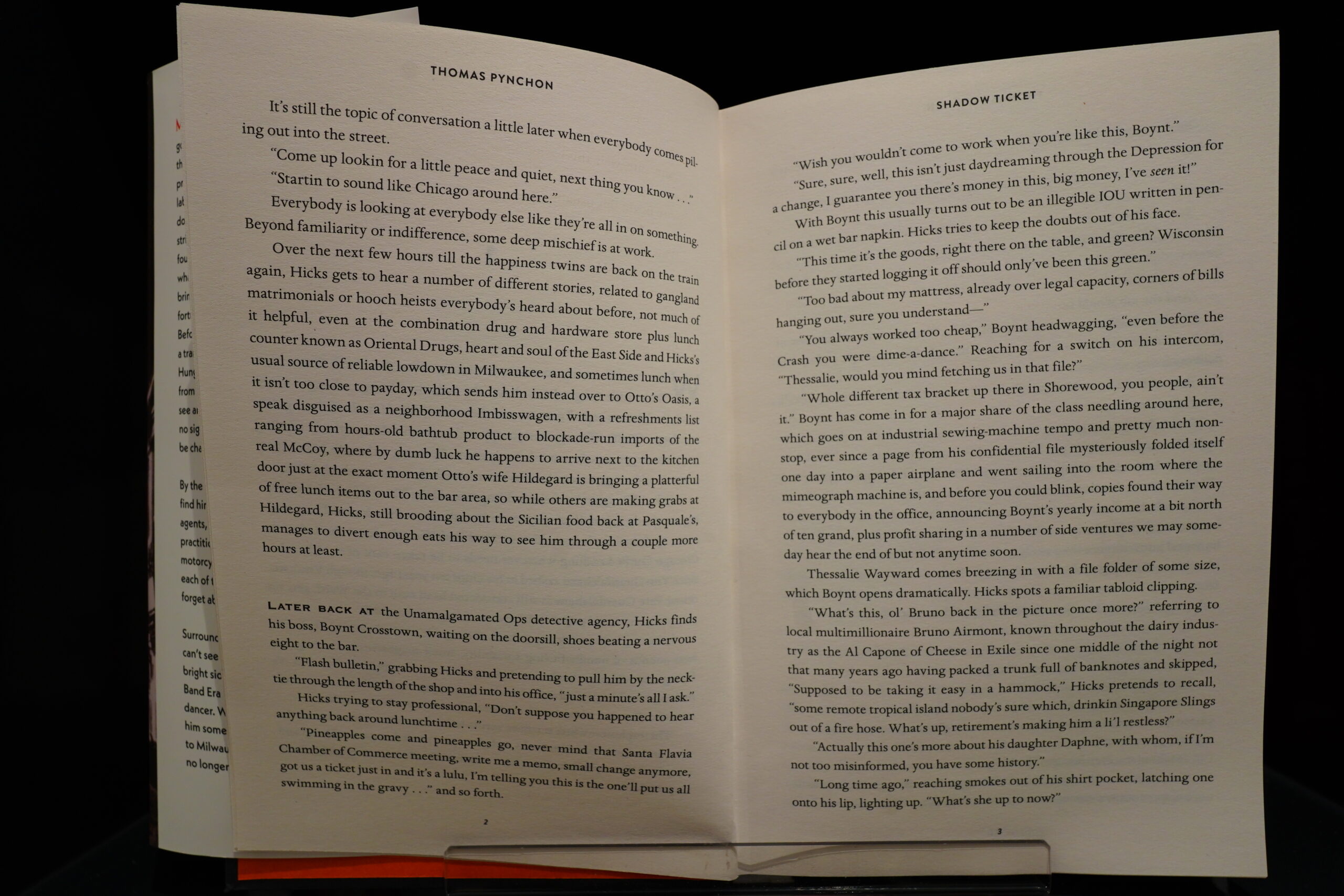It feels like such an unexpected gift to have a new Pynchon book all of a sudden. I mean, it’s twelve years since the previous one, and they were coming at a pretty good clip for a while back then.
And if there one author I’m not worried about succumbing to Old Male Author Syndrome, it’s Pynchon, but still… I avoid reading reviews of books I’m going to read, but it’s been impossible to not get at least a glimpse of some of them over the past few weeks, and it seems like people aren’t really into the book? Except on Twitter, where people mostly seem to be making jokes about reading the book performatively. (Which, to be fair, is what Twitter is for.)
But… it’s fantastic! It’s absolutely everything I want from a Pynchon book. He’s still got it — it’s still jokes, puns, repartee, and then some lyrics from a song. It’s been such a sheer pleasure reading this book. I’ve laughed out loud a few times, I’ve groaned a few times, and when things suddenly take a turn for the serious (like at the end of chapter 35), I’ve felt a chill going down my spine.
So now I’m curious to skim some of the reviews, because I don’t get why people aren’t out in the streets celebrating a fantastic book. Let’s see… I’m just trying to think what people might not like. First of all, I can totally see not everybody being into Pynchon’s style, which is to overwhelm the reader slightly — lots of things are less than clearly delineated, and I can see how that would annoy some people who hate being confused. But I found that it worked perfectly for me — I’m reading a paragraph and metaphorically scratching my head, but I find that by the next paragraph, I’ve understood everything anyway, unconsciously.
And the plot? Well, I’m not really much bothered by plots in general, but I can see how some people would find it a bit unstructured — it’s a bit of a shaggy dog story, but I found it very satisfying anyway.
OK — time to google.
Wow:
Narrative traction dissipates and then falteringly coheres. Pretty much every paragraph is the same shape. It’s wearying. Which is to say that while there are pleasures here, the prose is seldom one of them.
*rolls eyes*
Your appetite might differ, but for me, nine novels in, all this code-cracking and jigsaw-puzzling is no longer thrilling. The same goes for the other bells and whistles of Pynchon’s style; even a seventy-million-trick pony is still a trick pony, and much of what once seemed clever in his canon now seems tiresome.
Some people just aren’t paying attention:
Around page 260, I was muttering to myself things like “Ugh, wait, so who is Porfirio del Vasto again?” But that’s okay. Like a long day at an amusement park during which you begin to grow weary and grouchy in the evening, you’ve already had enough fun not to let the last part spoil the fond memories of the whole day.
gasp:
The first half proceeds at a comparatively leisurely pace, but it too feels rushed. The rise of the dairy industry in late-nineteenth-century Wisconsin, with its almost missionary zeal for scientific farming, could have been the setting for a classic Pynchon fight between consolidating forces and unruly resisters. It’s easy to imagine him writing at length about the invention of pasteurized processed cheese, its chemical properties, and its use by the military, which supplied millions of pounds of it to soldiers during World War I. Yet there’s nothing about the transformation of Wisconsin from farms to pastureland, and Velveeta and Kraft are mentioned only in passing.
Yeah, my impressions were right — reviewers were not impressed by the book, for the most part. But they’re all wrong, so *pththt*.
There are some positive reviews, of course:
At 88, Pynchon has written his most urgent novel yet thanks to a newfound narrative grounding that maintains his distinctive style of cartoonish maximalism and high-flown beauty. It is filled with his famously overstuffed paragraphs, often one thrumming sentence each. But his words go down a bit more smoothly than usual without sacrificing any of his crackle. The result is a Pynchonian reduction simmered to delectation.
Shadow Ticket (2025) by Thomas Pynchon (buy new, buy used, 3.79 on Goodreads)




